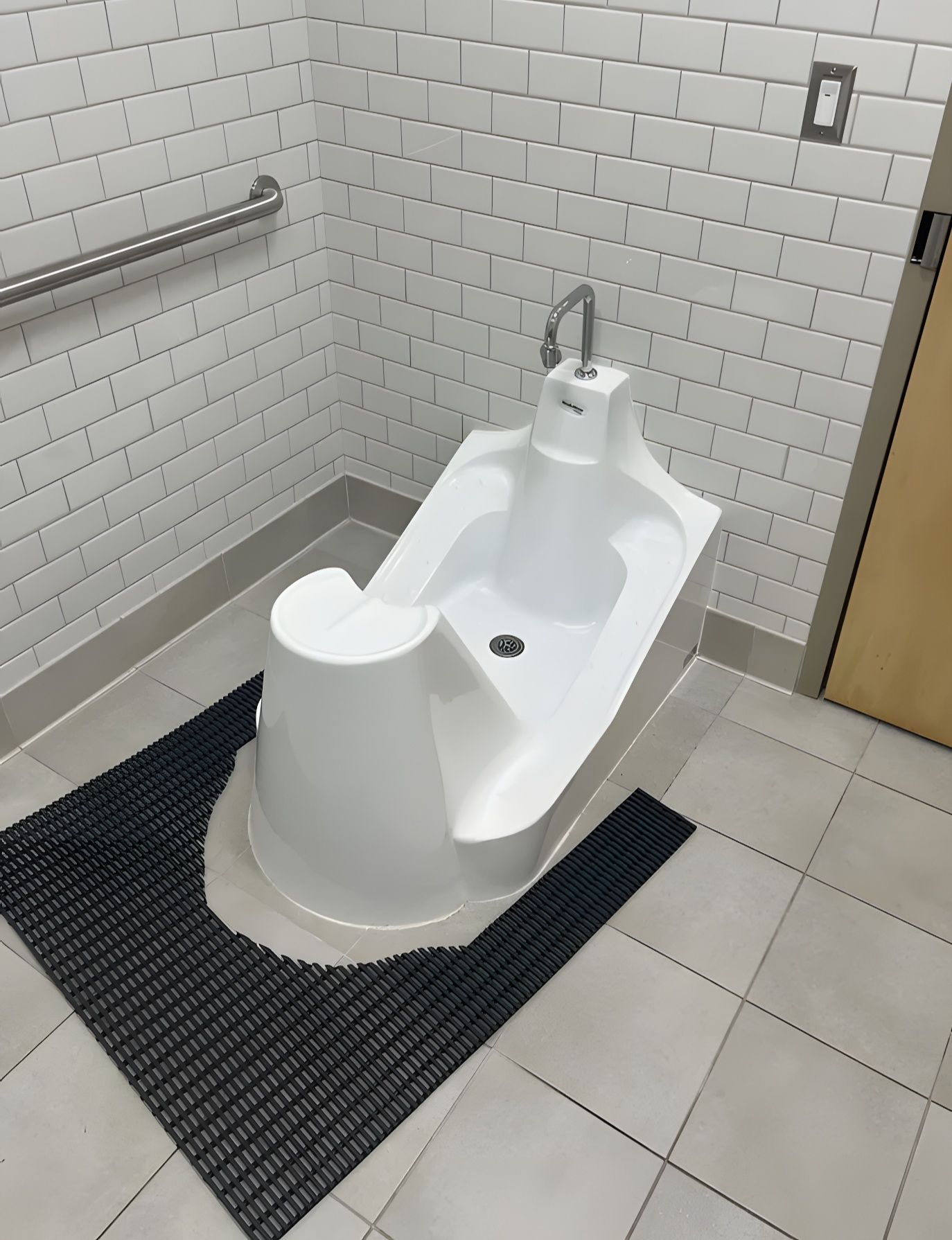Walking into a mosque today, you might immediately notice how peaceful and effortless the act of performing wudu feels, and that’s no accident. The modern wudu basin is far more than a standard sink—it’s a thoughtful blend of tradition, comfort, and accessibility that elevates a spiritual ritual into a calming, reflective experience.

This updated approach respects centuries of tradition while improving the experience for everyone. Wudu, the ritual purification performed before prayer, holds deep spiritual significance. It’s a sacred act that prepares both the mind and body for connecting with the divine. While the essence of wudu remains unchanged, the way we perform it has evolved in ways that make it more comfortable, inclusive, and mindful. The introduction of built-in stools at wudu stations, for example, is a subtle yet impactful change. For older adults, those with physical limitations, or parents assisting young children, crouching or bending over slippery tiles was often difficult and uncomfortable.
These integrated stools offer stable seating, allowing worshippers to complete ablution without strain, making the ritual more accessible and preserving the dignity of every individual. In addition to improved seating, the placement of faucets has become more ergonomic and respectful of the user’s posture. Traditional wudu areas often required awkward adjustments to reach the tap, sometimes involving buckets or stooping in uncomfortable positions. Today’s elevated faucets are designed for ease of access and gentle water flow, preventing splashing while maintaining a smooth, controlled stream. This improvement allows each movement to feel intentional and spiritual, rather than rushed or physically demanding. The design of these modern basins also takes cleanliness and sustainability into account.
Made from smooth, non-porous materials such as stainless steel or antibacterial ceramic, these basins are easy to clean, resist water stains, and drain efficiently—keeping the area hygienic and low-maintenance. Many units also incorporate water-saving features that align with environmentally conscious values, reducing waste while respecting the sacred nature of the ritual. This blend of practicality and sustainability reflects a broader commitment to preserving both faith and the planet. Accessibility is another key feature of the modern wudu space. Today’s mosques aim to be welcoming environments for all members of the community, including elders, children, those with disabilities, and even first-time visitors unfamiliar with Islamic practices. Wudu stations often include adjustable heights, anti-slip flooring, and open, barrier-free layouts that ensure everyone can participate comfortably and confidently in this essential act of worship. More than a matter of convenience, this inclusive design approach honors the presence and participation of every individual.
What’s perhaps most inspiring about these modern spaces is how they’ve been transformed into peaceful sanctuaries within the mosque. Wudu areas are no longer just functional—they’ve become places for personal reflection. Thoughtful touches like warm lighting, clean architectural lines, and the sound of softly running water create an atmosphere of tranquility. This quiet corner invites worshippers to pause, reflect, and prepare their hearts before entering prayer. It’s no longer about rushing through wudu but fully experiencing it as a sacred moment in itself. In today’s fast-paced world, moments like these are rare and invaluable. The modern wudu basin gently reminds us to slow down, reconnect, and ground ourselves in something greater than the daily grind. It bridges the past with the present, proving that tradition and comfort can coexist beautifully. By refining the smallest aspects of design, we move closer to a richer spiritual connection. This is what makes worship feel deeply fulfilling. Ultimately, the modern wudu basin is more than a practical upgrade—it’s a symbol of thoughtful devotion. Every feature, from the faucet’s angle to the seat’s height, is designed to support the worshipper on their spiritual path. At the heart of every mosque is a commitment to community and inclusivity, and these innovations reflect that value with grace. When the act of preparation feels sacred, the prayer that follows becomes even more profound, making the entire worship experience richer and more meaningful.





